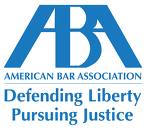 In February 2015, the ABA House of Delegates adopted a Fourth Edition of the ABA Criminal Justice Standards for the Prosecution and Defense Functions. This is the first new edition in more than twenty years. Louisiana lawyers practicing criminal law should have some familiarity with these standards. Although they are not binding, they are useful standards for guiding a lawyer’s professional conduct.
In February 2015, the ABA House of Delegates adopted a Fourth Edition of the ABA Criminal Justice Standards for the Prosecution and Defense Functions. This is the first new edition in more than twenty years. Louisiana lawyers practicing criminal law should have some familiarity with these standards. Although they are not binding, they are useful standards for guiding a lawyer’s professional conduct.
Prosecution Function
The Prosecution Function includes fifteen revised standards, including a new part on “Appeals and Other Conviction Challenges” (Part VIII). It also includes a new standard on the prosecutor’s heightened duty of candor (Standard 3-1.4). Under this standard, a prosecutor “should not make a statement of fact or law, or offer evidence, that the prosecutor does not reasonably believe to be true . . . .” Lawyers in general are charged only with a duty to avoid knowingly making a false statement of fact or law. See Model Rules of Professional Conduct Rules 3.3 and 4.1.
The Prosecution Function also includes a questionable (at least in my view) standard prohibiting bias on the basis of “race, sex, religion, national origin, disability, age, sexual orientation, gender identity, or socioeconomic status” (Standard 3-1.6).
Other new prosecutor standards include the following:
3-1.3 The Client of the Prosecutor
3-1.4 The Prosecutor’s Heightened Duty of Candor
3-1.6 Improper Bias Prohibited
3-3.6 When Physical Evidence With Incriminating Implications is Disclosed by the Defense
3-4.4 Discretion in Filing, Declining, Maintaining and Dismissing Criminal Charges
3-5.2 The Decision to Recommend Release or Seek Detention
3-5.3 Preparation for Court Proceedings, and Recording and Transmitting Information
3-5.5 Preservation of Information and Evidence
3-5.8 Waiver of Rights as Condition of Disposition Agreements
3-7.1 Post-trial Motions
3-8.1 Duty To Defend Conviction Not Absolute
3-8.2 Appeals – General Principles
3-8.3 Response to New or Newly-Discovered Evidence or Law
3-8.4 Challenges to Effectiveness of Counsel
3-8.5 Collateral Attacks on Conviction
Defense Function
The new edition of the Criminal Justice Standards for the Defense Function adds twenty-two new standards to the previous edition, including a similar standard prohibiting improper bias (Standard 4-1.6). The new edition also includes standards on Special Attention to Immigration Status and Consequences (Standard 4-5.5), Plea Agreements, and Other Negotiated Dispositions (Standard 4-6.3), Comments by Defense Counsel After Verdict or Ruling (Standard 4-7.10), and New or Newly-Discovered Innocence Evidence or Law (Standard 4-9.4).
Other new defense counsel standards include the following:
4-1.3 Continuing Duties of Defense Counsel
4-1.5 Preserving the Record
4-1.6 Improper Bias Prohibited
4-1.12 Training Programs
4-1.13 Assuring Excellence and Diversity in the Hiring, Retention and Compensation of Public Defense Counsel
4-2.3 Right to Counsel at First and Subsequent Judicial Appearances
4-3.2 Seeking a Detained Client’s Release from Custody, or Reduction in Custodial Conditions
4-3.5 Engagement Letter
4-3.10 Maintaining Continuity of Representation; Relationship with Successor Counsel
4-3.11 The Client’s File
4-4.6 Preparation for Court Proceedings, and Recording and Transmitting Information
4-5.4 Considerations of Collateral Consequences
4-5.5 Special Attention to Immigration Status and Consequences
4-6.3 Plea Agreements and Other Negotiated Dispositions
4-6.4 Opposing Waivers of Rights in Disposition Agreement
4-7.1 Scheduling Court Hearings
4-7.10 Comments by Defense Counsel After Verdict or Ruling
4-7.11 Motions for Acquittal During Trial
4-8.2 Reassessment of Options After Trial
4-9.1 Preparing to Appeal
4-9.4 New or Newly-Discovered Innocence Evidence or Law
4-9.6 Challenges to the Effectiveness of Counsel
